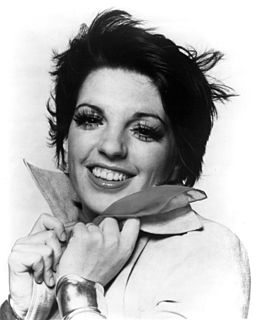Цитата Кэтрин М. Валенте
Она чувствовала себя так, как часто бывало в классе, когда была почти уверена, что ответила правильно, но не всегда могла заставить себя поднять руку.
Связанные цитаты
хотя в тот вечер она вернулась домой, чувствуя себя счастливее, чем когда-либо за свою короткую жизнь, она не путала вечеринку на поле для гольфа с хорошей вечеринкой и не говорила себе, что хорошо провела время. она чувствовала, что это было глупое мероприятие, которому предшествовали превосходные приглашения. то, что Фрэнки делала необычным, так это воображала, что держит все под контролем. напитки, одежда, инструкции, еда (ее не было), местонахождение, все. она спрашивала себя: если бы я была главной, как бы я могла сделать это лучше?
Она прислонилась к его голове и впервые ощутила то, что часто чувствовала с ним: самолюбие. Он сделал ее похожей на себя. С ним ей было легко; ее кожа казалась ей подходящего размера. Было так естественно говорить с ним о странных вещах. Она никогда не делала этого раньше. Доверие, такое внезапное и в то же время такое полное, и близость испугали ее... Но теперь она могла думать только обо всем, что еще хотела сказать ему, хотела сделать с ним.
Но я все думал вот о чем: в ту первую секунду, когда она почувствовала, что ее юбка горит, что она подумала? Прежде чем она узнала, что это свечи, она думала, что сделала это сама? С удивительными поворотами ее бедер и теплом музыки внутри нее, поверила ли она хотя бы на одну славную секунду, что ее страсть пришла?
Она была свидетельницей самых красивых вещей в мире и позволила себе состариться и стать некрасивой. Она почувствовала жар рева левиафана и теплоту кошачьей лапы. Она разговаривала с ветром и вытирала солдатские слезы. Она заставила людей видеть, она видела себя в море. На ее запястья садились бабочки, она сажала деревья. Она любила и отпустила любовь. Поэтому она улыбнулась.
Она посмотрела на себя в зеркало. Ее глаза были темными, почти черными, наполненными болью. Она позволила бы кому-нибудь сделать это с ней. Она все это время знала, что чувствует вещи слишком глубоко. Она привязалась. Ей не нужен был любовник, который мог бы уйти от нее, потому что она никогда не могла этого сделать — полюбить кого-то полностью и выжить невредимой, если она оставит ее.
И теперь она вернулась в мир, не тот, который она могла создать, а тот, который создал ее, и она чувствовала, что сжимается под ранним вечерним небом. Ей надоело находиться на улице, но она не была готова войти внутрь. Неужели это все, что есть в жизни, в помещении или на улице? Неужели людям некуда было идти?
На следующий день лицо Джо было предметом изучения, потому что тайна несколько тяготила ее, и ей было трудно не выглядеть загадочной и важной. Мэг наблюдала за этим, но не утруждала себя расспросами, поскольку знала, что лучший способ управлять Джо — это закон противоположностей, поэтому она была уверена, что ей все скажут, если она не спросит.
Она освободила себя от Фабио и от себя, от всех бесполезных усилий, которые она предпринимала, чтобы добраться туда, где она была, и ничего там не найти. С отстраненным любопытством она наблюдала возрождение своих слабостей, своих навязчивых идей. На этот раз она позволила им решить, так как она все равно ничего не могла сделать. Против определенных частей себя ты остаешься бессильным, сказала она себе, приятно регрессируя в то время, когда она была девочкой.
И все же были времена, когда он действительно любил ее со всей добротой, которую она требовала, и откуда ей было знать, что это были за времена? В одиночестве она злилась на его жизнерадостность, отдавалась на милость собственной любви и жаждала освободиться от нее, потому что она делала ее меньше его и зависела от него. Но как она могла освободиться от цепей, которые сама на себя надела? Ее душа была вся буря. Мечты, которые она когда-то имела о своей жизни, были мертвы. Она была в тюрьме в доме. И все же кто был ее тюремщиком, кроме нее самой?
Она (Джуди Гарланд) была моей подругой, подругой, пытающейся испытать себя, но подругой. Вот что я говорю себе: она делала все, что хотела. Она никогда не отказывала себе ни в чем ради меня. Видишь ли, говорю я, у нее была чудесная жизнь; она сделала то, что хотела сделать. И я не имею права менять ее удовлетворение на свое несчастье. Я сейчас на своей метле.






































